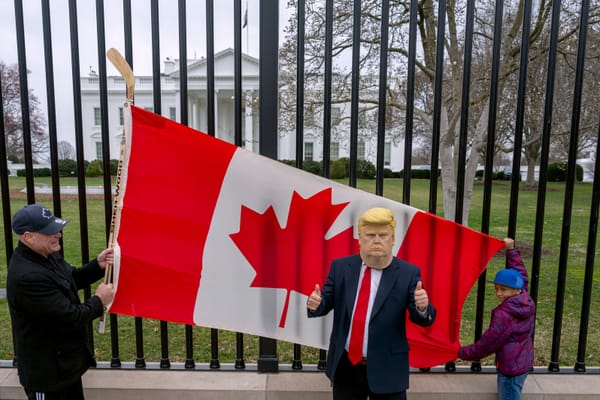The victory of Mark Carney’s Liberal Party in Canada’s election has been widely viewed as a significant turning point in world politics. On the face of it, the result seems to be a defeat for President Donald Trump and his brand of national populism. Whether or not Trump was serious in his claims on Canadian territory, his bluster provoked a remarkable backlash from Canadian voters.
For this reason, Carney’s election has been hailed as a first step toward building a global axis of resistance against Trump and a model of liberal confidence in standing up to populist thuggery. Carney’s supporters abroad are even calling on Canada to draw closer to the European Union—or even to join it—as part of the global effort to contain Trumpism and strengthen the West, now that the former leader of the free world has fallen to populism.
Carney’s win is indeed significant, but not for the reasons most people think. What the standard account overlooks is the fact that Carney won in large part by vigorously defending Canadian sovereignty and national independence. This in itself is a remarkable turnaround for him and his party. Back in 2017, Carney’s predecessor Justin Trudeau hailed Canada as the first “post-national country,” a state that had transcended the profane world of petty nations and ascended to a higher cosmopolitan plane of virtue. In a sense, Trump simply took Trudeau’s claim seriously and literally: If Canadian nationhood meant nothing, why should Canada not join the United States?
Carney is arguably even more post-national than Trudeau. For all his ostentatious globalism, Trudeau was the scion of a renowned national political dynasty. Carney, by contrast, is most known for being head of the central bank of another country—Great Britain—from 2013 to 2020, as well as enjoying a long list of senior posts in various globalist organizations: the Bank for International Settlements, the Group of Thirty, the World Economic Forum, the Financial Stability Board, and so on. Carney reportedly even decided to replace Trudeau as leader of the Liberal Party on the advice of the arch-globalist Tony Blair.
“Carney’s electoral victory happened on Trumpian terrain.”
In electing a consummate globalist to defend Canadian sovereignty, Canadian voters exhibited a voluble national pride more commonly seen south of the border. In that sense, even if Trump may not get his 51st state of the Union, he has nonetheless imposed the value of sovereignty and national independence on the archetypal post-national state. Far from signalling a global liberal rally against Trump, the fact that the liberals were only able to beat Trump by embracing the language of national independence, national interest, and sovereignty make clear that Carney’s electoral victory happened on Trumpian terrain.
That a globalist technocrat has embraced the language of assertive nationhood marks perhaps the most significant turning point in our post-global world yet. Carney’s victory is a more significant marker of the end of globalism than any populist could muster at the ballot box. No other liberal leader today—whether France’s Emmanual Macron, Germany’s Friedrich Merz or Britain’s Sir Keir Starmer—has been forced to construct such an explicitly sovereigntist platform to win an election.
This is especially striking because globalism is deeply rooted in Canada, which constructed its independent identity by way of liberal cosmopolitanism. Celebration of Canadian peacekeeping efforts through the United Nations and NATO replaced the memory of the battles of Passchendaele and the beaches of Normandy, while state-sponsored multiculturalism substituted for the diasporic Protestantism of the British Empire. Carney’s victory may now mark a shift to a new conception of post-global nationhood.
Whether or not a new Canadian nation can be built on this basis is yet to be seen, although Canada’s resources give it a strong basis for trade negotiations with a Trumpian White House in a fragmenting world economic order. What is certain is that with Carney’s electoral victory, the politics of national sovereignty has sealed its victory over globalism.
